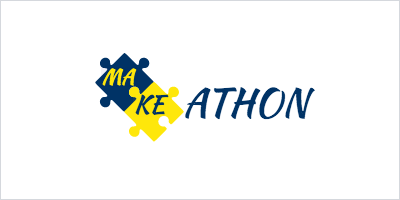metaphacts is proud to sponsor the 4th edition of MAKEathon, taking place on October 26-27, 2024, at the FHNW Campus in Olten, Switzerland.
metaphacts contributions
Pre-MAKEathon tutorial
Explicit knowledge modeling for AI-driven decision making
In this tutorial, you will learn about Knowledge Graphs (KGs) and the foundational technologies that support them, including
RDF, OWL and SPARQL, all standardized by the W3C. You will also explore a provided scholarly dataset. Additionally, the tutorial will demonstrate how AI technologies, particularly Large Language Models (LLMs), can be integrated with KGs to create an effective approach for addressing downstream tasks.
Additionally, the tutorial will demonstrate how AI technologies, particularly Large Language Models (LLMs), can be integrated with KGs to create an effective approach for addressing downstream tasks.
Date & time: October 16, 17:00 - 19:00 CET
Setup: Online session
Speakers: Dr. Nicolas Heist
Challenge
AI Assistant for Research Reproducibility
Scientific papers frequently introduce or reference complex software, datasets and experimental procedures essential for reproducibility. However, locating, understanding and utilizing these resources can be time-consuming and technically challenging. To address this issue, we invite proposals for the design and development of an AI-powered assistant that helps researchers navigate this complexity.
The assistant should leverage scientific knowledge graphs, such as SemOpenAlex, to assist users in discovering relevant software, datasets and resources from academic papers. It should not only locate these resources but also provide guidance on setting them up, explaining their functionality, and, ideally, automating the experiment execution process. The assistant’s complexity can vary from a basic exploratory tool that maps relationships between resources (e.g., software and datasets) in a paper to an advanced agent that employs reasoning and automation to fully configure and reproduce experiments.
For example, when presented with a software-related research topic, the assistant could retrieve pertinent papers from SemOpenAlex and supply information and setup instructions for the associated artifacts. It can analyze metadata from SemOpenAlex and connect with knowledge graphs like Linked Papers with Code or Wikidata to provide external links to artifacts (e.g., GitHub or Zenodo).
The level of guidance offered by the assistant, powered by a large language model (LLM), may vary based on the nature of the artifacts. For a dataset, the assistant might deliver a summary, an overview of related datasets, and a sample of the data. For a software library, it could describe its capabilities and suggest applications in the context of the research topic. Ultimately, the assistant should provide comprehensive guidance on integrating these artifacts into a cohesive setup.


















